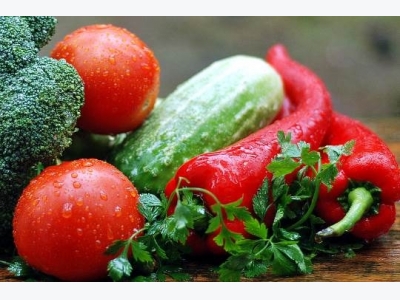U.S. to export $3bn worth of agricultural goods to Philippines in 2018

As it sees its total agricultural exports going up to $140 billion in 2018, the United States is expecting the Philippines to eat up a 2-percent share anew in its agriculture exports for next year.
A data from the U.S. Department of Agriculture (USDA) showed that for the first and second semester of 2018, U.S. sees its agriculture exports to the Philippines to stand around $2.5 billion, which would be slightly lower than its projection for this year.
Some of the commodities that are currently being shipped from US to the Philippines include cereal, soybean flour, poultry products, fruits, wheat, among others.
“[Globally], soybean export volumes continue to set records, raising the soybean forecast $200 million to $24.1 billion, which offsets expected declines in soybean meal and oil. Cotton exports are up $300 million on higher volumes and unit values,” USDA report revealed on Friday.
For this year, U.S. expect the Philippines to have a share of 2 percent in its total agriculture exports, which would have a value of $2.62 billion.
This would be higher than the $2.47 billion and $2.42 billion worth of agriculture exports that were shipped from US to the Philippines in 2016 and 2016, respectively.
While USDA’s estimates were a bit conservative, it still sees its fiscal year 2018 agricultural exports to improve to $140.0 billion, up $1.0 billion from the August forecast, largely due to expected increases in corn and distiller’s dried grains with solubles (DDGS).
“Higher corn volumes and unit values and strong demand for DDGS are largely responsible for driving grain and feed exports up $1 billion to $29.4 billion,” the USDA report said
Có thể bạn quan tâm
 US allows import of VN mangos
US allows import of VN mangos The United States Department of Agriculture’s Animal and Plant Health Inspection Service (APHIS) has given permission for fresh mango fruit imports from Vietnam
 Vietnam yet to sow seeds of low carbon rice
Vietnam yet to sow seeds of low carbon rice Investment in low carbon farming models can speed up rice industry reform, increase productivity, boost farmers’ incomes and ensure sustainable development
 UN agriculture agency looking at cactus as climate resilient food
UN agriculture agency looking at cactus as climate resilient food The United Nations Food and Agriculture Organization (FAO) is urging communities around the world not to take the prickly cactus for granted.